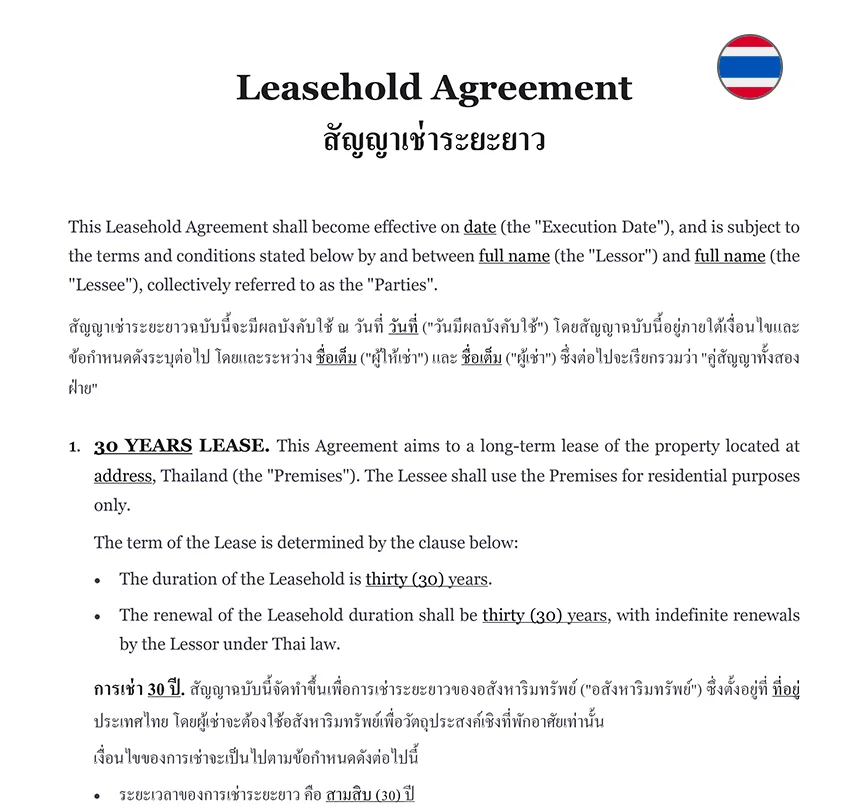Ready to use legal template
Drafted by experienced lawyers
Certified Thai-English translation
Ready to use legal template
Drafted by lawyers
Translated in Thai-English
Home › Rent your property › Leasehold agreement
Learn more about Thailand 30-year Leasehold
Entering into a leasehold contract is not something to be taken lightly. This leasehold contract commits you to rent your property on a long-term basis for a maximum of 30 years, renewable once. Themis Partner will assist you with real estate lawyers in drafting a leasehold adapted to Thai law and to register at the land office. The leasehold allows foreigners to own a property in Thailand, whether it is a land, a house, a villa, a condominium or an apartment. You can also download a model of leasehold contract available in english and thai in order to save on your legal costs while guaranteeing your optimal protection. Ensure you get paid according to your terms of payment, set out the duration and lease conditions, and protect your property from any damages.
Table of contents
What is a leasehold agreement?
What are the legal protections with a leasehold agreement?
What is the maximum term of a leasehold agreement?
Do I have to register my leasehold with the land office?
Can the leasehold contract be transferred to my heirs?
How can I avoid unpaid rent by the tenant?
Under what conditions is the lease renewable?
What is a leasehold agreement?
It is essentially a long-term lease in which the lessor rents a property to another for a long period of time (maximum 30 years). Indeed, in Thailand, a long-term lease is often used to own a property for a long period of time, given the possibility for foreigners to own a property. For this reason, this leasehold contract is advantageous for foreigners who wish to have a property for a maximum period of 30 years, renewable once. In conclusion, the rental contract allows to palliate this difficulty and to obtain a right of use of a real estate, whatever its nature, for a foreigner in Thailand.
What are the legal protections with a leasehold agreement?
A Thai long term lease is only a rental agreement, and tenant protection is weak and fragile in Thailand. Therefore, the contractual clauses of your leasehold contract must protect you. That’s why our lease agreement offers you full legal protection in case of default by the other party or an unforeseen event. Most importantly, you will have broad protection in case of issues such as:
| ➤ Getting paid on time by specifying the payment schedule |
| ➤ Protection in case of non-payment of rent by the tenant with a penalty clause |
| ➤ Ensuring that the parties fulfill their obligation in good faith |
| ➤ Make the agreement legally enforceable by registering the tenant with the land office |
| ➤ Facilitate the renewal of the lease agreement at the end of the lease period |
| ➤ To avoid any damage or illegal construction without the prior consent of the party |
| ➤ Use our agreement for residential or commercial purposes |




